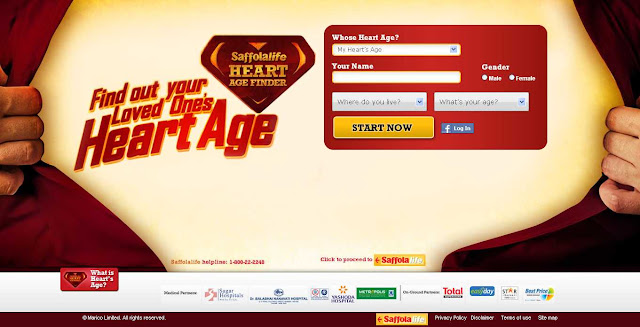Heart Care Post : Improving & treating low Ejection Fraction (EF)
Dated : 24th Jun, 2013
Source : www.hrsonline.org
 Recently I was advised by my Cardiologist to live my life according to my heart's capacity as my LVEF is low nearly 26-28%. In healthy heart it is between 50-75%. For more information you can visit "Heart - Ejection Fraction (EF)" page.
Recently I was advised by my Cardiologist to live my life according to my heart's capacity as my LVEF is low nearly 26-28%. In healthy heart it is between 50-75%. For more information you can visit "Heart - Ejection Fraction (EF)" page.
Following is informative information in connection to same.
A Low EF
A low EF number is an early sign of heart failure.
IMPROVING YOUR EF
Depending on your EF number, your doctor may make recommendations to help you improve your EF. In some cases, medication may be prescribed.
Source : www.hrsonline.org
 Recently I was advised by my Cardiologist to live my life according to my heart's capacity as my LVEF is low nearly 26-28%. In healthy heart it is between 50-75%. For more information you can visit "Heart - Ejection Fraction (EF)" page.
Recently I was advised by my Cardiologist to live my life according to my heart's capacity as my LVEF is low nearly 26-28%. In healthy heart it is between 50-75%. For more information you can visit "Heart - Ejection Fraction (EF)" page.Following is informative information in connection to same.
A Low EF
A low EF number is an early sign of heart failure.
This is a condition where the heart does not pump enough blood to the rest of the body. With treatment, many people live well with heart failure.
If you have a low EF number, it is important that you recognize the signs of heart failure, which may include:
1. Fatigue (feeling tired all the time)
2. Shortness of breath
3. Swelling in the feet
A low EF can also cause a very rapid heartbeat, which can make your heart pump ineffectively. If you have heart disease, your doctor will check your EF periodically, closely monitoring your condition.
2. Shortness of breath
3. Swelling in the feet
A low EF can also cause a very rapid heartbeat, which can make your heart pump ineffectively. If you have heart disease, your doctor will check your EF periodically, closely monitoring your condition.
IMPROVING YOUR EF
Depending on your EF number, your doctor may make recommendations to help you improve your EF. In some cases, medication may be prescribed.
There are also other things you can do to improve how well your heart pumps.
1. Limit Salt
Limiting salt (sodium) to 2,000 mg a day is an important part of maintaining a healthy heart and treating heart failure.
With a low EF, your kidneys get less blood than they should. This makes them unable to rid the body of excess water and salt.
Eating too much salt can lead to even more fluid buildup. It also increases your blood pressure, which makes an already weakened heart work harder.
2. Manage Your Fluids
With a low EF, blood can back up in your lungs and force fluid into the breathing spaces. The fluid then builds up, making it difficult to breathe.
Excess fluid can also cause weight gain and swelling.
Your doctor will recommend the amount of fluids you should have daily, depending on your EF.
3. Exercise Regularly
Exercise can help strengthen your heart and improve how well it pumps blood to the rest of the body.
All it takes is 30 minutes a day of activity, even if that activity is walking.
Talk to your doctor about an exercise program that is right for you.
TREATING LOW EF
Several large clinical studies have been conducted in recent years to see if ICDs ( Implantable Cardiac Defibrillator ) could help prevent SCA in those people whose heart muscle, and its pumping ability, is damaged by a heart attack.
Several large clinical studies have been conducted in recent years to see if ICDs ( Implantable Cardiac Defibrillator ) could help prevent SCA in those people whose heart muscle, and its pumping ability, is damaged by a heart attack.
People in the studies had an ejection fraction (EF) of 40 or below.
In these studies, survival rates were significantly higher for people with ICDs compared to those who received traditional medical care.
Many people who have a reduced EF can benefit from a medical device called an ICD. An ICD is a pacemaker-like device that treats ventricular fibrillation (VF), the deadly heart rhythm that causes sudden cardiac arrest (SCA).

Comments
Post a Comment